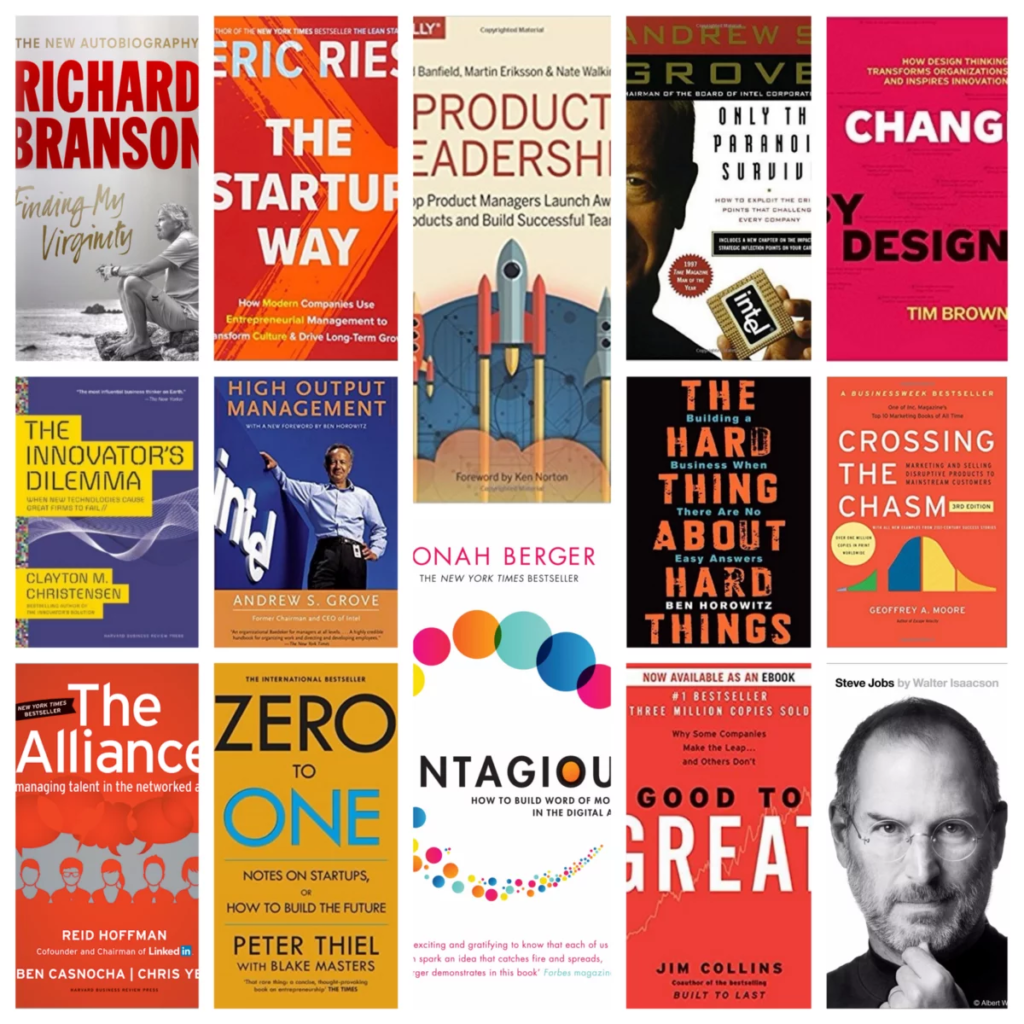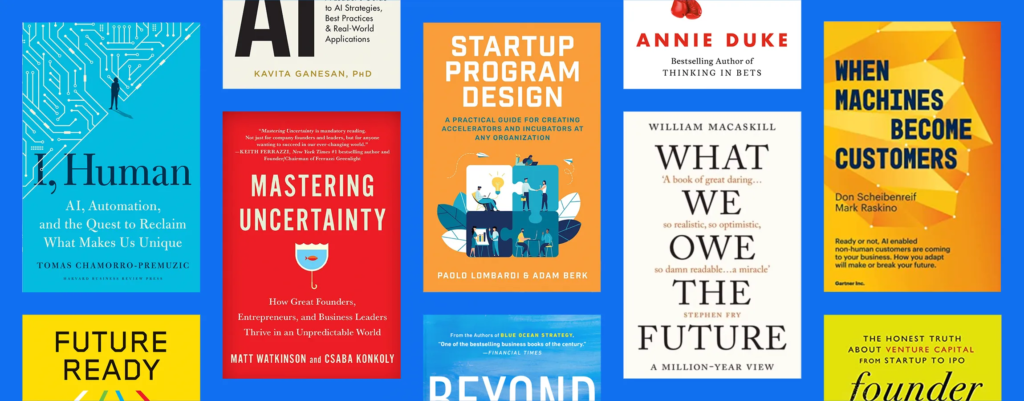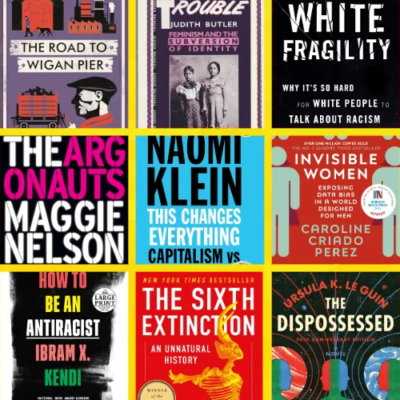Starting a business is an exciting yet challenging journey. Whether you’re a first-time founder or a seasoned entrepreneur, the right knowledge can make all the difference. Books written by successful business leaders, investors, and innovators provide invaluable insights that can help you avoid common pitfalls and accelerate growth.
In this article, we’ll explore the best business books every startup founder needs. These books cover essential topics like leadership, strategy, marketing, and mindset—all crucial for building a thriving business.

Why Reading Business Books Matters for Startup Founders
Before diving into the recommendations, let’s understand why reading is a non-negotiable habit for entrepreneurs:
- Learn from Experts: Books distill decades of experience into actionable lessons.
- Avoid Costly Mistakes: Many founders share their failures so you don’t repeat them.
- Stay Motivated: Entrepreneurship is tough—inspirational stories keep you going.
- Sharpen Decision-Making: Strategic thinking improves with exposure to great ideas.
Now, let’s explore the must-read books for startup success.
1. The Lean Startup by Eric Ries
Why It’s Essential:
Eric Ries revolutionized startup thinking with his Lean Startup methodology. The core idea? Build fast, test quickly, and adapt based on feedback. Instead of spending years perfecting a product, founders should launch a Minimum Viable Product (MVP) and iterate based on real user data.
Key Takeaways:
- Validated Learning: Test assumptions before scaling.
- Pivot or Persevere: Know when to change direction.
- Sustainable Growth: Focus on long-term strategies over quick wins.
Best For: Founders in tech, SaaS, or any industry where rapid experimentation is key.
2. Zero to One by Peter Thiel
Why It’s Essential:
PayPal co-founder Peter Thiel argues that true innovation happens when companies create something entirely new (going from zero to one) rather than competing in crowded markets (going from one to n).
Key Takeaways:
- Monopoly Over Competition: Dominate a niche before expanding.
- Secrets of Success: Look for untapped opportunities.
- The Power of Technology: Leverage tech to build the future.
Best For: Visionary founders aiming to disrupt industries.

3. The Hard Thing About Hard Things by Ben Horowitz
Why It’s Essential:
Unlike most business books that focus on success, Ben Horowitz dives into the brutal realities of entrepreneurship—layoffs, crises, and tough decisions.
Key Takeaways:
- Embrace the Struggle: Leadership is about handling chaos.
- Hiring & Firing: Build the right team, even when it’s painful.
- Mental Toughness: Resilience separates winners from quitters.
Best For: CEOs facing high-pressure challenges.
4. Atomic Habits by James Clear
Why It’s Essential:
Startup success isn’t just about strategy—it’s about consistency. James Clear explains how small habits compound into massive results.
Key Takeaways:
- 1% Rule: Tiny improvements lead to big wins.
- Habit Stacking: Link new habits to existing ones.
- Environment Matters: Design your workspace for productivity.
Best For: Founders struggling with discipline and productivity.
5. Good to Great by Jim Collins
Why It’s Essential:
Jim Collins studied companies that made the leap from good to great and identified common traits—like disciplined people, thought, and action.
Key Takeaways:
- Hedgehog Concept: Focus on what you’re best at.
- Level 5 Leadership: Humble but driven leaders win.
- Flywheel Effect: Momentum builds with consistent effort.
Best For: Scaling startups ready to transition into industry leaders.
6. The $100 Startup by Chris Guillebeau
Why It’s Essential:
Not every business needs huge funding. Chris Guillebeau profiles entrepreneurs who built profitable ventures with minimal investment.
Key Takeaways:
- Start Small: Validate ideas without big budgets.
- Passion + Profit: Align business with personal interests.
- Lifestyle Design: Build a business that fits your life.
Best For: Bootstrappers and solopreneurs.
7. Hooked: How to Build Habit-Forming Products by Nir Eyal
Why It’s Essential:
If your startup relies on user engagement (like apps or SaaS), this book explains how to design products people can’t quit.
Key Takeaways:
- The Hook Model: Trigger → Action → Reward → Investment.
- Ethical Persuasion: Build habits without manipulation.
- Retention Over Acquisition: Keep users coming back.
Best For: Product managers and UX-focused founders.
8. The E-Myth Revisited by Michael E. Gerber
Why It’s Essential:
Many startups fail because founders work in the business instead of on it. Gerber explains how to systemize operations for scalability.
Key Takeaways:
- Work ON Your Business: Don’t get stuck in daily tasks.
- Franchise Mindset: Build processes that run without you.
- Three Roles of an Entrepreneur: Technician, Manager, Visionary.
Best For: Founders feeling overwhelmed by operations.

9. Traction by Gabriel Weinberg & Justin Mares
Why It’s Essential:
Great products fail without customers. Traction breaks down 19 channels to get users, from SEO to partnerships.
Key Takeaways:
- Bullseye Framework: Focus on the best growth channels.
- Test & Scale: Double down on what works.
- Marketing = Experimentation: Not all strategies fit every business.
Best For: Startups struggling with customer acquisition.
10. Start with Why by Simon Sinek
Why It’s Essential:
People don’t buy what you do—they buy why you do it. Sinek’s Golden Circle model helps founders craft compelling missions.
Key Takeaways:
- Inspire Action: Lead with purpose, not just products.
- Loyalty Over Transactions: Customers stick with brands they believe in.
- Clarity of Vision: Communicate your why clearly.
Best For: Brand-building and leadership development.
Final Thoughts
Reading these books won’t guarantee success, but they’ll equip you with the mindset, strategies, and resilience needed to navigate the startup world. Whether you’re looking for tactical growth advice or motivational leadership lessons, these books offer timeless wisdom.
Action Step: Pick one book from this list and commit to reading it this month. Apply at least three key lessons to your business—then move to the next.
Which book will you start with? The right knowledge could be the game-changer your startup needs.
Know More :- Top 10 Best Education Trends in the USA You Need to Know in 2025





